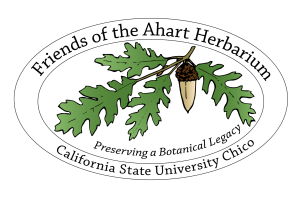Research and Conservation of Rare Alkali Wetland Plant Species in the Southern Great Basin and Mojave Deserts
Thursday, November 21, 2024
7:00 – 8:00 PM (Via Zoom)
By Naomi Fraga
Director of Conservation Programs, California Botanic Garden
View the Presentation Here
The southern Great Basin and Mojave deserts in eastern California and western Nevada support numerous special status plant species that are endemic to alkali wetlands. These species face numerous threats including groundwater extraction, off-highway vehicle (OHV) trespass, mining exploration, grazing ungulates, and climate change. Groundwater pumping and subsequent hydrological alteration has been identified as the most significant threat to the long-term persistence of these species. I present ongoing research with the goal of informing conservation efforts for four species: Astragalus lentiginosus var. sesquimetralis (Sodaville milkvetch, Fabaceae), Chloropyron tecopense (Tecopa bird's beak, Orobanchaceae), Nitrophila mohavensis (Amargosa niterwort, Amaranthaceae), and Zeltnera namophila (spring-loving centaury, Gentianaceae). In late spring of 2024 a large group of volunteer botanists (and the first meeting of the unofficial Astragalus appreciation society) employed a pilot study to evaluate the utility of using spectral imagery to identify potential habitat for alkali wetland species using Astragalus lentiginosus var. sesquimetralis. Results of our survey and potential utility of these data will be discussed. We will also present preliminary population genetic and phylogenetic results for Chloropyron tecopense and Zeltnera namopila to evaluate the distinctiveness of disjunct populations.
Beginning her work at the Garden in 2001, Dr. Fraga has taken on various roles; currently she serves as Director of Conservation Programs. Fraga earned her Ph.D. in 2015 from Claremont Graduate University and Rancho Santa Ana Botanic Garden. Her research focuses on systematics of the species formerly treated in the genus Mimulus (Phrymaceae) and commonly known as monkeyflowers, as well as the floristics of California, conservation of rare species, and pollination biology.



